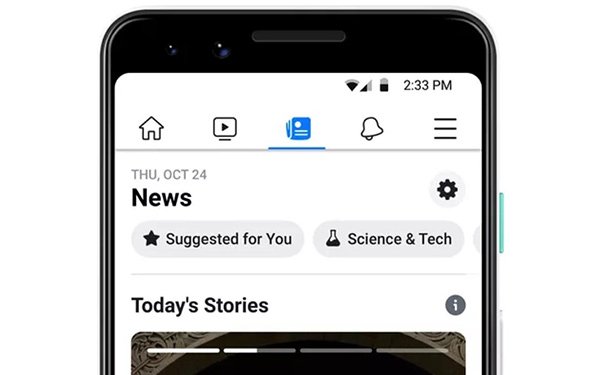
Still in its
test phase, the just-launched Facebook News will serve as a destination for partner publishers, including The Wall Street Journal, BuzzFeed and USA Today.
If readers are
receptive, the new service could challenge Apple’s News Plus offering — and represent a significant realigning of Facebook’s content priorities.
In exchange for their
content, Facebook has r
eportedly been offering publishers up to $3 million in annual licensing fees.
Yet, news organizations might be wary of working with Facebook after it rolled out a big news push years ago,
only to later backtrack and drop the initiative. To address publishers’ concerns, Facebook executives are taking a highly collaborative approach to the new service.
“We talked to
news organizations about what they’d like to see included in a news tab, how their stories should be presented and what analytics to provide,” Campbell Brown, vice president, global
news partnerships, and Mona Sarantakos, news product manager, said in a company blog post.
For its part, Facebook has good reason to refocus on news.
Across platforms, consumers are
more engaged with news content today than a couple of years ago, according to research from Verizon Media and Insights Now.
Compared to 2017, 41% of consumers said they get more news coverage
now, the research partners found. More interesting, the research found that a majority of consumers are getting most of their news from social-media platforms.
At the same time, many U.S.
consumers have grown uncomfortable with the power that social-media giants possess as news gatekeepers.
In fact, a clear majority of Americans (62%) said social giants like Facebook have too
much control over the news people see on their platforms, according to a recent report from the Pew Research Center.
Further, a majority of Americans (55%) told Pew he role social-media companies play in delivering the
news on their platforms results in a worse mix of news.
On average, Republicans tend to be more negative than Democrats regarding the control that social-media companies have over the news,
Pew found.
To address concerns of political bias and other content issues, Facebook has formed a curation team to manage the Today’s Stories section of Facebook News.
The team
will have editorial independence and will select stories based on publicly available guidelines, available atz facebook.com/news
To be
eligible for Facebook News, publishers have to be registered in its News
Page Index, and abide by Facebook’s Publisher Guidelines.
With the
help of third-party fact checkers, Facebook will screen news content for misinformation, community standards violations, clickbait and engagement bait.
Initially, the new service will only be available to a small percentage of Facebook users in the United States and be concentrated in larger metro areas, such as New
York, Los Angeles, Chicago, Dallas-Fort Worth and Philadelphia.